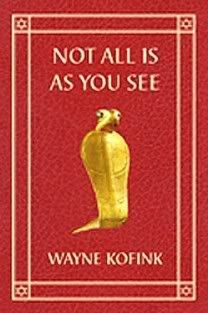CONNECTING

Our local theatre featured One Upon a Mattress this summer as a “teen” musical. I put “teen” in quotes because a number of the actors are already in college. It was a well done performance with several of the actors performing far beyond what you’d expect in the typical “high school” musical where you’re just glad they got through the whole thing without a major disaster. No, this was much better than that.
I was speaking with one of the talented performers about a quality I called “connecting with the audience.” Now you have to understand I don’t know the first thing about acting. Yes, I do readers’ theater, but that only requires me to stand in one place and read the lines well enough so that no one in the audience says, “Are they nearly done yet?’ (That has happened.) I know a bit about the literary qualities of plays, I know a good bit about vocal music (having once taught it), I know when I enjoy a production, but I don’t know anything about the technique or artistry of acting. I just know what I perceive. As a result I don’t know exactly what I meant about “connecting with the audience.” According to the philosopher G. E. Moore, if you don’t mean exactly something, you don’t mean anything at all. Maybe I don’t mean anything, then again . . .
Let me give you a non-theatrical example. About 20 years ago I went to hear an American theologian speak at a conference. I had read his books, and found him very interesting. I should have stuck with his books. The speaker could not remember anything that was on his lecture manuscript, so he had to read what he had written. He was exceedingly near sited so he read bent over his pages, never looking up. He read in an absolute monotone without the slightest inflection other than a slight pause at a period. OK, the information was there. It was presented, but the processes of communication was laborious, far more opaque than if he had just passed out copies for us to read, which he wasn’t going to do because he was working the material into a book. This is the most egregious example I can think of “not connecting with an audience.”
Of course theatre isn’t the same as giving a lecture. Except in some types of theatre the performers don’t interact with the audience by waving to them or chatting with them. But that’s not what I mean by connecting with the audience. For the sake of simplicity, let’s just say that a play tells a story. (Yes, I know there is a lot more to it than that, but I’m not writing a dissertation here.) The actors don’t read the story, they act it. And we, the audience, watch and listen. The actors know there is an audience out there and we know they know. We aren’t just spying on real life.
Now, all sorts of things happen because there is an audience that wouldn’t happen if the actors were just doing the play for themselves. Actors have to use gestures that are broader than you’d normally use in ordinary life. They use makeup that looks outlandish off the stage. They speak so as to get their voices beyond the footlights. And the stage is set for the audience to see what’s going on. Look at the convention of sitting at only three sides of a table on stage. All for that is necessary for the audience.
There is something else to it, though, something harder to explain. The actors not only present the story, but they help the audience understand the story. Some of the actors on stage are actually standins for us. If one character is speaking and another rolls their eyes, we know that something outrageous is being said. If characters look frightened we know that fright is the proper emotion to have. For example, suppose a script called for a character to say, “Boo!” How the actor delivers that line communicates its intention, whether it is supposed to be really frightening or not frightening at all or just a nuisance like a little kid who sneaks up behind grandma to scare her. But we are also helped by the way other characters respond. Do they cower in fright or go on without noticing or give a little jump? All of that is necessary to connect with the audience. The big one in comedy is allowing space for laughter. If an actor talks right through the audience’s laughter, they disconnect from the audience. There’s probably all sorts of things like that going on that I’m not aware of, but maybe you get the drift. A good performance connects with the audience.
It’s not just in theatre where this is important. There are religious implications to this as well. Surprised? You shouldn’t be. Theatre has its roots in religion. Today’s theatre grew out of the mystery plays of Medieval Christianity. And the development of theatre has touched Christianity, especially worship. Even in so-called free worship there is structure. There is use of actions (ritual), stage setting, ways of speaking, costume, incidental music. The congregation has a fascinating ability to slip back and forth between being the audience and being actors. (The word “liturgy” means the people’s work.) I have sometimes speculated on whether a sociologist from another planet would be able to distinguish theatre from worship.
One of the most interesting areas where “connecting with” is important is in the Scripture. That’s going to take some explaining. Maybe you could connect back again next week for that topic.
Until we reconnect, may the Lord bless you on your journey, and greet you on your arrival.
Wayne
4058
Labels: connecting, Theatre












